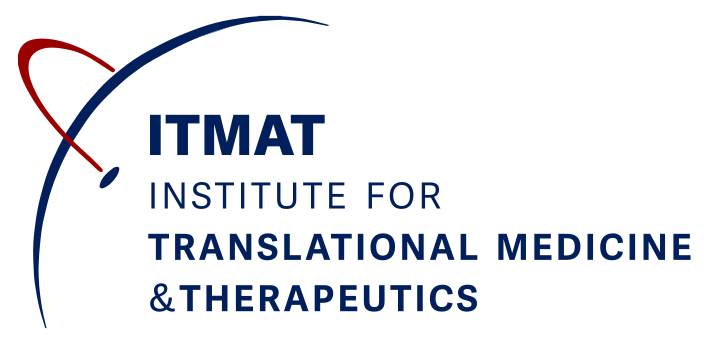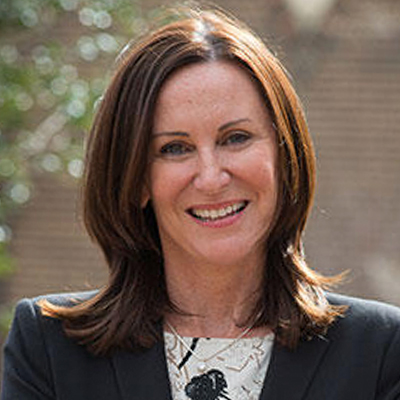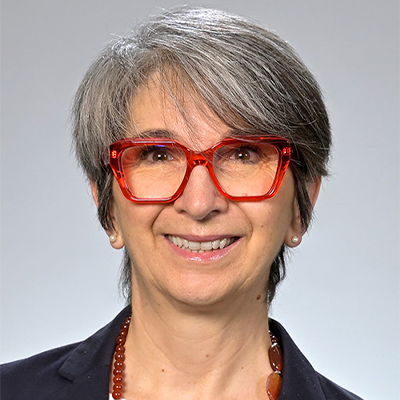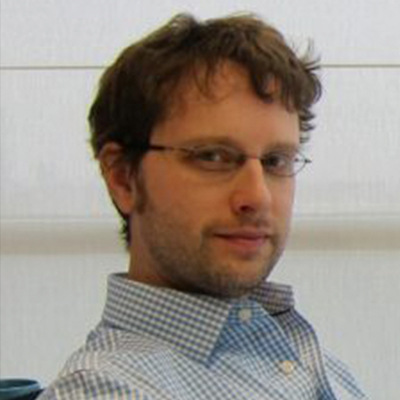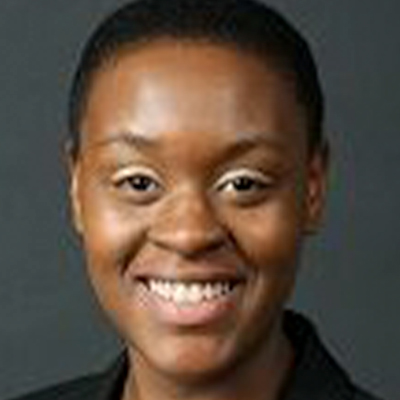Education & Training Overview
The Institute for Translational Medicine and Therapeutics (ITMAT) offers educational programs at the undergraduate, predoctoral, and postdoctoral levels, organizes an annual international symposium, seminar series, and various workshops focusing on emerging topics in translational research. The ITMAT/CTSA Educational Programs are directed by Emma Meagher, MD.
ITMAT Education is committed to ensuring the delivery of high-quality programs in clinical and translational science for researchers and research support staff, and building a rigorous, resilient, inclusive and diverse CTS workforce.
The objectives of ITMAT Education are:
- To provide comprehensive and multidisciplinary training in both scope and depth for CTS investigators
- To innovatively deliver the methods and goals of the CTSA
- To judiciously invest in CTSA resources to broadly impact the Penn learning community
- To provide flexible and individualized programs to match the needs of a large and heterogenous workforce
- To collaborate with CTSA partners in developing strategic initiatives to advance CTS
- To implement and disseminate proven strategies of CTS education across Penn and the CTSA community
- To enhance diversity, equity, and inclusion in the CTS workforce
See ITMAT Education and Training leaders and administration.
Office Location: 8033 Maloney, Hospital of the University of Pennsylvania, 3400 Spruce St., Philadelphia PA 19104
Frequently Asked Questions
Below you’ll find answers to some of the most commonly asked questions by prospective applicants to ITMAT programs including master’s degrees, certificate programs, funding opportunities, and professional development programs. While we hope this information answers your questions, we also recommend prospective applicants to set a time to meet with a program representative prior to application.
General Questions (All Programs)
General
What is ITMAT?
The Institute for Translational Medicine and Therapeutics (ITMAT) supports research at the interface of basic and clinical research focusing on developing new and safer therapeutics. ITMAT offers research cores, research programs, research centers, and educational programs in clinical and translational science for researchers and research support staff. These are designed to facilitate training and research particularly from proof of concept in cellular and animal model systems across the translational divide to proof of concept and dose selection in humans. Become a member and utilize ITMAT resources and learn more about ITMAT.
What is ITMAT Education?
ITMAT Education is the portfolio of education programs offered by ITMAT. We are committed to ensuring the delivery of high-quality programs in clinical and translational science for researchers and research support staff, and building a rigorous, resilient, inclusive and diverse CTS workforce. ITMAT Ed offers educational programs at the undergraduate, predoctoral, postdoctoral, and staff levels, and offers many symposia, seminars, and various workshops focusing on emerging topics in translational research.
The ITMAT Educational Programs are directed by Emma Meagher, MD. To view the list of ITMAT Ed Faculty and Administrative Leadership click here.
What is Translational Research?
Translational research seeks to produce more meaningful, applicable results that directly benefit human health. The goal of translational research is to translate basic science discoveries more quickly and efficiently into clinical practice.
What is Regulatory Science?
There is increasing global demand for trained scientists who work in Academia, Biotech, Pharma, the FDA, and similar global regulatory agencies who are adept at applying knowledge of scientific and regulatory strategy to the design and execution of research portfolios focused on all stages of product (drug, biologic, and device) development.
The Master of Science in Regulatory Science is designed to provide training in scientific and regulatory strategy to those who aim to pursue careers working on product development in Academia, Biotech, Pharma, the FDA and equivalent global regulatory agencies.
What is Regulatory Affairs?
Regulatory affairs professionals play key roles in bringing innovative products to market while also ensuring that products are safe and effective. Regulatory professionals work to maximize compliance, assure quality, and minimize risk in the development of FDA-regulated products (drugs, devices, and biologics) apply science-based clinical investigation and corresponding regulations.
Application
What’s required in the application and how do I apply?
Applications are submitted online via CollegeNet. Each program has an application page with instructions for how to create a CollegeNet Account and select your program, as well as the required documentation and instructions for personal statements and guidelines for letters of recommendation.
When do I apply?
For MSTR and MSRS: The annual request for applications (RFA) is announced in early September and due mid-October each year. The deadline is posted on the program webpage here.
For MRA: Applications for fall matriculation are due May 1st of each year.
MSTR and MSRS
Eligibility
Am I eligible for the MSTR or MSRS programs?
Eligibility for the MSTR is detailed on the program webpage.
Eligibility for the MSRS program is detailed on the program webpage.
Eligibility for the Certificate program is detailed on the program webpage.
If you are also applying for ITMAT funding to complete an education program, reference the funding eligibility overview. Only one application is required to be considered for the education programs and funding awards.
I’m external to Penn/CHOP, am I eligible to apply?
If you are external to the institution, you will need to identify a Penn or CHOP mentor in order to be eligible for the program. In addition, you must also meet the other eligibility criteria for the program.
Do I need to have research experience to apply to the program?
We expect applicants to have a deep understanding of their research topic, but the program is designed to provide you with research knowledge, skills, methods, and tools needed to carry out your project. You need to be committed to your proposed project and identify a primary mentor with the interest and ability to guide you and your project.
What does 80% protected time mean?
For postdoctoral and faculty scholars, you must have 80% of your effort dedicated and funded for research. You may utilize the remaining 20% for clinical time, teaching, or other efforts.
Application
How do I know which program and/or funding mechanism is right for me?
The MSTR and MSRS programs are primarily attractive to individuals seeking training in T1 translational research such as testing basic research findings for clinical effect (i.e. preclinical, first in human, proof of concept, phase 0/1 clinical trials) and research focused on the elucidation of mechanistic and therapeutic aspects of disease processes. The degree attracts students from all basic science and clinical disciplines.
Students can choose to concentrate in a specific area of translational science. Concentrations include Discovery Science, which is intended for students interested in pathophysiological disease processes. Projects may be proof of concept in cell or animal models or using human samples; Translational Therapeutics and Regulatory Science, for students focusing on testing therapeutic discoveries for efficacy and safety; Entrepreneurial Science, offers students the opportunity to translate their research into innovative solutions and develop approaches to commercialization; and Bioinformatics/Biomedical Informatics, for students who wish to become translational scientists who can leverage informatics approaches to develop and test their own hypotheses as collaborators with informaticians.
When should I apply?
Predocs
MD-MSTR: Applications are due in the fall of year 3 of the MD program.
DMD-MSTR: Applications are due in the fall of year 2 of the DMD program and follow the dental dual-degree application process.
PhD Certificate Applications are accepted on a rolling basis.
Predocs are not eligible for the MSRS program.
Postdocs
The timing of when you should enroll in the program is based on your career trajectory. Our learning community includes students who are junior faculty members, clinical fellows, postdoctoral fellows, residents, and predoctoral combined degree students. Notably, the students have reported benefiting from the intermingling of predocs, postdocs, and faculty in the same learning environment.
Contact us to talk about your career and how our educational programs would benefit you.
Do I need to submit a separate application to be considered for ITMAT funding?
No. If you submit your application during the annual request for applications, you will be automatically considered for both the education program and ITMAT funding opportunities.
Which concentration do I select in the application?
Select a concentration based on your career trajectory and research project area. This decision informs your plan of study and mentorship structure. You may change your concentration during the program.
Research Project
Is your project a good fit for the program? Or do you have a few different projects and/or mentors in mind? We encourage you to reach out to get feedback on your project and mentorship team.
For the MSTR, review the concentrations to determine if your project would be best served by the MSTR curriculum and program. For the MSRS, review the program information and thesis project examples to determine if your project would be best served by the MSRS curriculum and program.
There are additional master’s degrees in the Perelman School of Medicine which are also available to you.
Reach out to Megan Maxwell to discuss your project, mentor, or any other aspect of the program.
What if my project changes?
The program anticipates that your project may change. The first course, Proposal Development, guides you through refining your project. An important part of translational research is to maintain focus, but it is rarely a straight line. When developing your project proposal for application, it is important to acknowledge the hurdles you may face and potential solutions.
Finances
How do students pay for the program?
ITMAT provides funding opportunities through the CTSA KL2 Career Development Award, the CTSA TL1 Training Grant, and ITMAT Scholarships. Students are also funded by T32 training grants, departmental funds, or faculty tuition benefits. To learn more about funding opportunities for the program, contact Megan Maxwell.
How are research supplies paid for?
Costs associated with your research project may be paid for by your mentor’s lab or a research grant.
Regulatory Affairs
Eligibility
Am I eligible for the MRA or certificate in RA programs?
Eligibility for the MRA is detailed on the program webpage.
Eligibility for the RA Certificate program is detailed on the program webpage.
Regulatory Affairs programs are designed for working professionals currently employed in the field of regulatory affairs and clinical research. Candidates should have work experience related to regulatory affairs. Strong writing skills are also required. English language proficiency (TOEFL or degree from an English-language institution) is required as well.
Application
Can I start in a semester other than fall?
The MRA program operates on a cohort-based model. Additionally, some courses required in the first semester are only taught during the fall. Applicants should plan to apply by May 1 for fall matriculation each year.
That noted, learners are occasionally (as space allows) permitted to take REG courses as non-degree students, and these courses can be retroactively applied to the MRA or certificate program if they are part of the approved list of courses and the scholar later completes the application and receives admission to the MRA or certificate program. Scholars interested in taking regulatory courses as non-degree students should submit a permit request in Path@Penn (if they have taken other classes at Penn before) or the ITMAT course request form (if they have never taken classes at Penn).
Finances
How do students pay for the program?
The Master of Regulatory Affairs and Certificate in Regulatory Affairs are designed for part-time enrollment so that scholars can continue to work while taking classes. Scholars can use tuition benefits from their employers, including, in the case of Penn and CHOP employees, Penn tuition benefits. (Please consider the taxability of graduate tuition benefits also.) Please note that if your employer has a tuition benefit and is not Penn/CHOP, you will need to familiarize yourself with the benefit and its stipulations.
The Student Financial Services office can work with students to determine payment and financial aid details. However, the Regulatory Affairs Certificate will not qualify students for federal financial aid.
Certificate Programs
General
How do the certificate programs differ from the master’s degrees?
The certificate programs require a smaller commitment than master’s degrees. Certificate programs generally require the completion of four (4) courses or credit units, and a 1-year time commitment. The master’s programs of ITMAT Education require the completion of ten (10) courses or credit units, and a 2-year time commitment, including a summer semester.
Certificate in Translational Research, Regulatory Science, or Entrepreneurial Science
How do I apply to the certificate in TR, RS, or ES? And am I eligible?
Please view the Certificate Application Information webpage for details.
Certificate in Regulatory Affairs
How do I apply to the certificate in RA?
Please view the Certificate Information webpage.
How is the certificate in RA different from the certificates in RS, TR, and ES?
The certificate in regulatory affairs has a different curriculum than the certificates in regulatory science, translational research, and entrepreneurial science. The certificate in regulatory affairs does not require the completion of a research project, while the other certificates do require a research project. The certificates in regulatory science, translational research, and entrepreneurial science require applicants to be enrolled in a Penn PhD program or postdoctoral students, while the regulatory affairs certificate requires only a bachelor’s degree and relevant experience.
If I initially apply to the Certificate in Regulatory Affairs, can I later pursue the master’s degree?
Yes. Scholars may receive admission to the certificate program and go on to complete the Master’s in Regulatory Affairs.
In some cases, candidates who apply for the MRA program will be invited to enroll in the certificate program first, and to later matriculate into the MRA upon completion of several courses as a certificate student. The certificate provides an entry point for scholars to build skills and competencies either with a lower time commitment than the MRA or as a preparation for the MRA.
In each case, moving from the Certificate to the MRA will require a formal application, but current Certificate students can be granted a waived application fee.
Disclaimer
Please note that policies concerning admissions, curriculum, funding and financial aid are subject to change. Additionally, though variations in the curriculum may be possible, any changes will need prior approval and may have financial implications. This website is meant to provide preliminary general overview information only. Students interested in or enrolled in the program should seek personal advising from relevant faculty and staff.
ITMAT Education Collaborations
KL2 CTSA Visiting Professorship Program
Organized via a working group out of the Center for Leading Innovation & Collaboration (CLIC), this program provides an opportunity for KL2 Scholars to virtually visit a CTSA institution, give a national talk and meet with faculty from the CTSA institution. The first cohort of KL2 scholars visits will begin Fall 2020. Dr. Emma Meagher, Director of ITMAT Education, serves on this CLIC Working Group Leadership Committee.
University of Pittsburgh — Building Up a Diverse Pipeline for the Biomedical Research Workforce
Aims to jump-start the careers of underrepresented junior investigators by providing them with the mentoring, skills, and knowledge needed for successful research careers. Dr. Emma Meagher, Director of ITMAT Education, serves as the site chamption for Penn.
University of Pittsburgh — R21 Customized Career Development Platform (CCDP) Study
A multi-site trial under the leadership of PIs Dr. Doris Rubio and Dr. Cecilia Patino-Sutton to understand the effectiveness of different types of individualized development plans (IDPs). Dr. Emma Meagher, Director of ITMAT Education, serves as a Co-Investigator for this study.
UE5 Short Course: Cell & Gene Therapy Toolkit for Junior Faculty
Collaborative initiative between the Institute of Translational Medicine and Therapeutics (ITMAT), the Abramson Cancer Center, and Oncology at the Children’s Hospital of Philadelphia (CHOP), the University of Pennsylvania (Penn) is honored to be one of four institutions selected to host a short course education opportunity for junior faculty within the NCI Awardee Skills Development Consortium (NASDC). This program is led by key ITMAT Education faculty including Dr. Elizabeth Hexner, Dr. Andrew Fesnak, and Dr. David Mankoff.
Advanced Therapies Intensive
The Perelman School of Medicine at the University of Pennsylvania in partnership with King’s Health Partners and King’s College London offers a one-week transatlantic educational experience for trainees focused on the development of novel therapeutics. The intensive is led by Emma Meagher, MD from Penn, Anne Greenough, MD from KCL, and Francesco Dazzi, MD, PhD from KCL.
Rockefeller University — Team Science
Vanderbilt University — Flight Tracker
Externships with Pharma & Biotech
CTSA Workforce Development Taskforce
TL1 and KL2 Workforce

